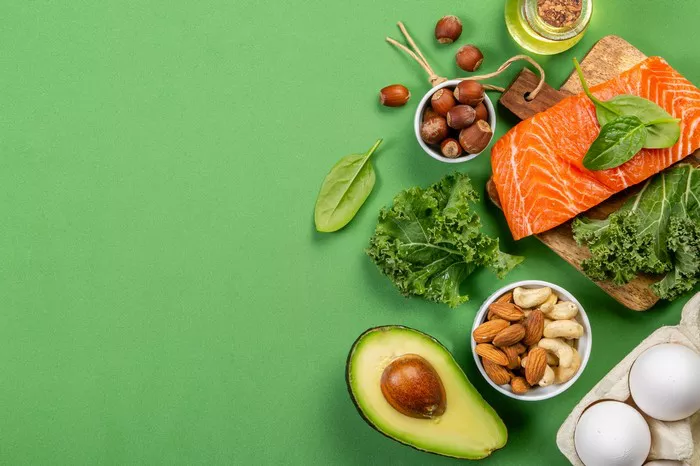When it comes to embracing a balanced and mindful approach to nutrition, fresh fruits are a colorful and nutrient-rich addition to our diets. While fruits provide an array of vitamins, minerals, and antioxidants, their natural sugar content can vary. For those seeking to manage their sugar intake or monitor blood sugar levels, it’s helpful to know which fresh fruits have the least sugar. In this article, we’ll delve into a selection of fruits that offer a harmonious balance between flavor and low sugar content.
1. Berries: Nature’s Gems
Berries, including strawberries, blueberries, raspberries, and blackberries, are among the lowest sugar fruits. They are rich in fiber, antioxidants, and vitamins while boasting relatively low sugar levels. The natural sweetness of berries comes with a bonus: their fiber content helps slow down sugar absorption, making them an excellent choice for those looking to manage blood sugar levels.
2. Watermelon: Hydrating and Refreshing
Watermelon is a summer favorite that’s not only hydrating but also surprisingly low in sugar. With its high water content and mild sweetness, watermelon provides a guilt-free way to enjoy a naturally refreshing treat. Moderation is key, as even though watermelon has relatively low sugar content, consuming large quantities can contribute to overall carbohydrate intake.
3. Cantaloupe: Sweet and Nutrient-Rich
Cantaloupe, also known as muskmelon, offers a sweet and fragrant taste with moderate sugar content. Rich in vitamins A and C, cantaloupe provides essential nutrients while remaining a relatively low sugar fruit option. Its vibrant orange hue is indicative of the antioxidants it contains, supporting overall health and well-being.
4. Avocado: Creamy and Nutrient-Dense
Avocado might not be the first fruit that comes to mind, but it’s a unique addition to this list. Low in sugar and high in healthy fats, avocados offer a creamy texture and a wealth of nutrients, including potassium, vitamin K, and folate. Their versatility makes them a great addition to salads, spreads, and smoothies.
5. Kiwi: Tangy and Fiber-Packed
Kiwi is a tangy and vibrant fruit that’s also relatively low in sugar. With its fuzzy exterior and emerald green flesh, kiwi is a source of vitamin C, vitamin K, and dietary fiber. The combination of fiber and antioxidants makes kiwi a valuable addition to a diet focused on balancing sugar intake.
6. Lemon and Lime: Zesty and Low Sugar
Lemons and limes are citrus fruits that are renowned for their zesty and tangy flavors. They are naturally low in sugar and can be used to add brightness to dishes and beverages without contributing excessive sweetness. The vitamin C content of lemons and limes also provides a boost of immune support.
7. Grapefruit: Bitter-Sweet Balance
Grapefruit is another citrus fruit that strikes a unique balance between bitter and sweet flavors. Its tartness might be an acquired taste for some, but it’s worth exploring. Grapefruit is low in sugar and is often associated with weight management due to its potential impact on metabolism and blood sugar regulation.
8. Raspberries: Delicate and Flavorful
Raspberries, with their delicate and flavorful profile, are a testament to the beauty of moderation in sweetness. These berries are low in sugar and high in dietary fiber, which supports healthy digestion and can help stabilize blood sugar levels. Raspberries’ deep red color is indicative of their antioxidants and phytonutrients.
9. Cranberries: Tart and Nutrient-Rich
Cranberries are known for their tartness, and their low sugar content makes them a suitable choice for those looking to limit sugar intake. They are often consumed dried or as a juice, but fresh cranberries can be enjoyed as well. Cranberries are rich in antioxidants and have been associated with urinary tract health.
10. Blackberries: A Dark and Sweet Treat
Blackberries are dark and sweet, but their sugar content remains relatively low. These berries are a source of vitamins C and K and contain anthocyanins, which contribute to their rich color and potential health benefits. Incorporating blackberries into your diet provides a burst of flavor without a high sugar impact.
11. Oranges: Vitamin C Powerhouse
Oranges are a classic citrus fruit that’s not only high in vitamin C but also offers a moderate amount of sugar. While they are higher in sugar compared to some other fruits on this list, their nutritional value and benefits make them a valuable addition to a well-rounded diet. Opting for whole oranges instead of orange juice can provide additional fiber.
12. Apples: Fiber-Rich and Satisfying
Apples are known for their crisp texture and sweet-tart taste. While they contain a moderate amount of sugar, their high fiber content helps slow down sugar absorption and supports satiety. Choosing apples with the skin on provides additional nutrients and fiber.
Conclusion
Nature’s bounty offers a diverse array of fresh fruits that cater to a range of taste preferences and dietary needs. For those aiming to manage sugar intake, focusing on fruits with the least sugar content can provide a delicious way to enjoy the benefits of natural sweetness without causing significant spikes in blood sugar levels. Berries, watermelon, cantaloupe, and other options listed here offer a harmonious balance between flavor and nutritional value. As with any dietary choices, individual preferences and health considerations should guide your decisions. By incorporating these low sugar fruits into your diet, you can savor the goodness of nature’s offerings while embracing a balanced and mindful approach to nutrition.

























